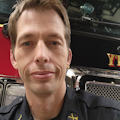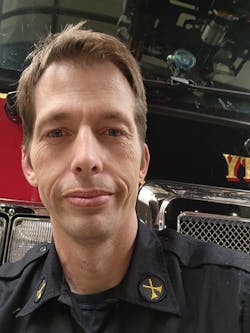Most organizations consider experience as one of the most valuable attributes that an employee can possess. Why is experience so valuable? How is it measured? Is it overvalued or undervalued?
We should value experience, but not everyone’s definition of experience is the same. Some experience is gained passively, and some is earned.
Two types of experience
Firefighters who have experience bring skills, knowledge and abilities to a scene. In the eyes of the less experienced, the former always seem to have a solution, even in the most complex situations, whether at the station or on a high-acuity call. Those who have experience often are the first to realize that something isn’t quite right. They have seen normal so many times that abnormal stands out to them. This allows them to benefit from naturalistic decision-making. In other words, their quick decisions are based on a memory bank of similar past situations.
What about unique situations? These require the firefighter or company officer who elected to develop both earned and passive experience.
How do we gain experience?
We all collect knowledge as we go through life. The only knowledge that we are born with is how to eat and keep our ABCs (airway, breathing, circulation) intact. We develop our library of knowledge from interactions with our environment, including people, media and experiences.
Some seek out knowledge, while others just wait to passively come across it. The firefighters who read magazines and books and practice their craft in training scenarios gain experience at a faster rate than people who spend their downtime playing on their phone.
Furthermore, experience should be measured by knowledge and application of it, not solely by a calendar.
Passive experience
Passive experience can be gained simply by showing up to work. Given enough years, most firefighters will be able to make the correct and quick decisions in routine situations, but what about unique ones? Twenty-year veterans who are less aggressive about education but have 20 years of passive experience intimately know their apparatus, job and zone. These firefighters are an excellent resource when one addresses an issue that he or she saw before. Even passive experience can be valuable. It just accumulates at a slower rate and plateaus quickly.
In the beginning of a career, most experiences are new ones. They likely will be applied to similar situations in the not too distant future. However, as many of you who are reading this can attest, the frequency of situations that never before were seen becomes less and less as we go through our career. How often we learn something new also becomes less frequent when we rely on passive experience alone. The old saying, if you’re not growing, you’re dying, comes to mind.
Another negative side effect of relying on passive experience alone is that it can foster a resistance to change. We work in an evolving profession. Most of us have seen several major changes in our strategies and tactics during our career and probably will see a few more before we hear that last tone. For members who value their passive experience above earned experience, not only is change difficult for them, but, from their perspective, their value to an organization diminishes. Although the latter certainly isn’t justified, this should help us to understand why some people are so resistant to change.
To address this, we should value earned experience over passive experience. Resisting change in any field that is evolving can leave a person bitter and outdated.
Earned experience
In contrast, earned experience is gained by individuals who continue to learn from their calls as well as other educational resources. Although formal education is incredibly valuable, even informal education contributes to earned experience. Books and articles in magazines and on websites, such as Firehouse.com, can prepare you for situations that otherwise would take an entire career to encounter.
However, reading alone isn’t enough. You must be willing to apply what you learn on the training ground, where you have the advantage of repetition until perfection is achieved.
We even can apply new knowledge with mental exercises. Studies have shown that when we imagine performing a task in vivid detail, the same areas of our brain light up as when we actually perform the task. Olympic swimming medalist Michael Phelps is said to visualize every stroke in a race before he ever sets foot in the pool. From a neurological perspective, you get nearly the same mental gains by simply visualizing the scenario. That said, this method isn’t without its shortcomings, but it still is better than watching 1980s TV reruns.
These firefighters also have more control over the rate of their growth than firefighters who only rely on tones to drop to gain experience. This approach also primes a firefighter for changes that are associated with the evolution of our profession.
The bad news: As you progress in your organization, you might encounter some toxicity from those who are senior to you. You are passing them up, because they have slowed their own growth by relying on passive experience alone for professional development. When you are promoted and you hear, “You aren’t experienced enough,” you should know that none of us are experienced “enough.” No one will try to fill a cup that the individual believes is full.
The good news is that you’re going places and pulling our profession with you. Chief Alan Brunacini earned his first promotion with four years of service under his belt. I am confident that someone in his organization was in a recliner complaining about his lack of experience. However, we don’t know the name of—nor were any books written about—that disgruntled firefighter.
Obvious difference
Let’s compare two hypothetical firefighters who work for the same organization.
Firefighter A has served for 20 years while receiving not much more than an entry-level education. The member’s downtime at work and home is spent on social media and watching “M*A*S*H” reruns. Firefighter A is loved by most coworkers, because they have known Firefighter A since they started, and the 20-year veteran always is pleasant to be around.
Firefighter B has served for five years and always is eager to learn and train. Even during downtime, Firefighter B has a magazine or book in hand or can be found on the training ground. Firefighter B attended most, if not all, of the classes that were made available. As likable as Firefighter B is to be around, fellow members’ familiarity is less than that of Firefighter A.
A promotion becomes available, and both firefighters test and pass the promotional exam. After their interview with the department promotional panel, the topic of experience becomes a deciding factor on who should be promoted. Who do you think has the most experience? I would argue that Firefighter B still has much to learn, but Firefighter A has much more to learn and has demonstrated a lack of interest in doing so. The experience that your department and our profession deserve is both earned and passive experience. The fire service should fill leadership positions with those who demonstrate a growth mindset. Years of service that aren’t supplemented by education simply are less valuable. Firefighter A probably is a great person who I would love to eat dinner with, but the evolution of our profession will leave this individual behind.
If you’re reading this article, you are more than likely the firefighter who is gaining earned and passive experience. If this is the case, you’re more experienced than your years reflect. Sometimes, but not always, this means that the five-year firefighter has more experience than the 15-year firefighter.
My advice to you is learn from that senior firefighter at your department and supplement it with every resource that you have available. Years of learning and serving are more valuable than just years of serving.
About the Author

James Ownbey
James Ownbey is a battalion chief who has been in the fire service for 17 years. He has served the past 14 years with Glynn County, GA, Fire-Rescue. Ownbey has promoted through the ranks from firefighter/paramedic to battalion chief, including assignments as lieutenant, captain, EMS supervisor and medical branch director of large-scale incidents. He also is the program director for College of Coastal Georgia's EMS/paramedic degree program.
